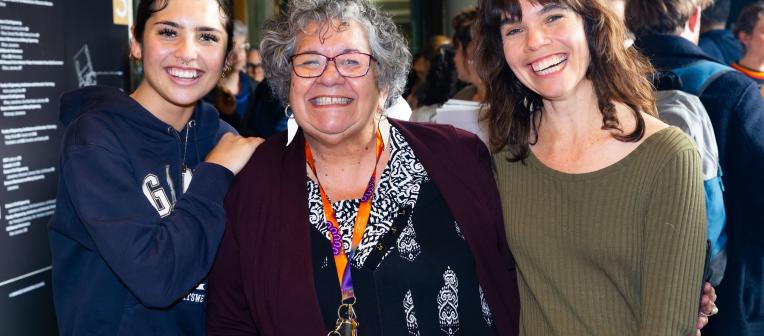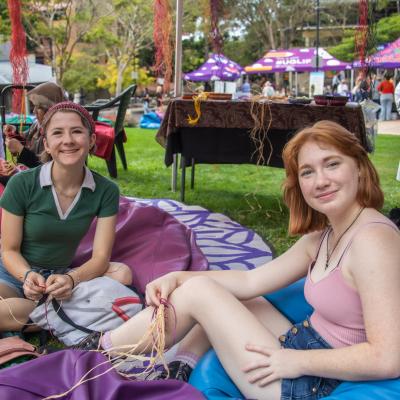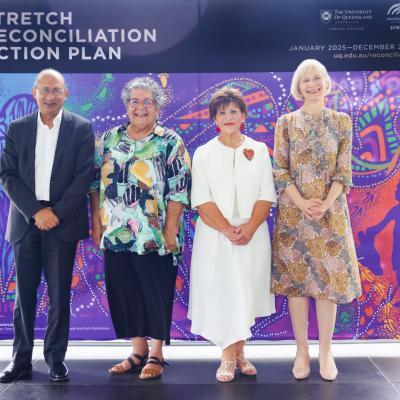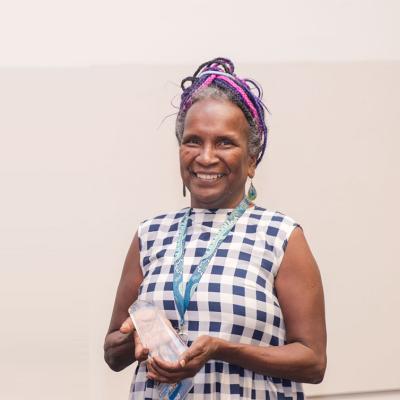The University of Queensland marked a significant milestone in 2025 — celebrating 50 years of NAIDOC Week on campus with a powerful and wide-ranging program of events across all UQ campuses.
Centred on this year’s national theme, “The Next Generation: Strength, Vision and Legacy,” UQ’s NAIDOC Week brought together students, staff, alumni, and the wider community to honour the enduring contributions and leadership of Aboriginal and Torres Strait Islander peoples — past, present and emerging.
A powerful call for truth-telling
One of the most moving moments of the week was the UQ NAIDOC Week Keynote Lecture, delivered by Joshua Creamer, a proud Waanyi and Kalkadoon barrister and former chair of Queensland’s now-abandoned Truth-telling and Healing Inquiry.
Speaking to a captivated audience of more than 700 people in person and online, Mr Creamer challenged listeners to reflect on what it means to move forward as a nation without fully acknowledging the past.
“How do we embrace the future when we can’t acknowledge our past?” he asked.
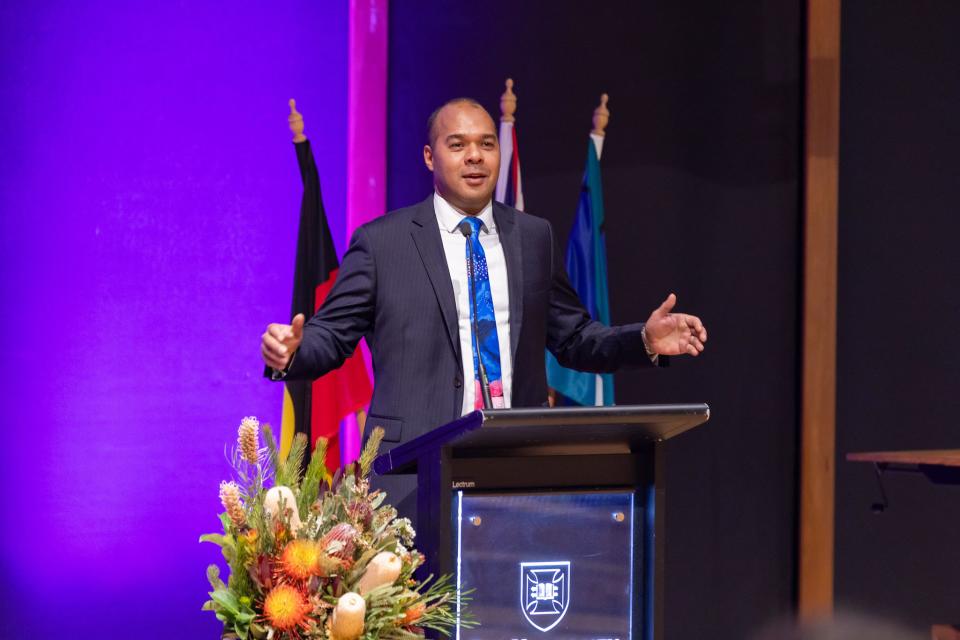
Waanyi and Kalkadoon barrister Joshua Creamer delivers the 2025 UQ NAIDOC Week Keynote Lecture, calling for a renewed national commitment to truth-telling and justice.
Drawing on his experience in landmark class actions involving stolen wages and the Stolen Generations, Creamer spoke about the emotional toll still felt by communities following the closure of the inquiry. He emphasised that truth-telling remains a critical and unfinished part of Australia’s reconciliation journey. His message — that the stories of those who lived through historical injustices must be heard while there is still time — deeply resonated with attendees and was later captured in a Canberra Times article.
The event was not only a highlight of UQ’s NAIDOC Week but also a moment of national significance. You can view the full photo gallery from the lecture here.
Art tour brings stories and strength to life
Another crowd favourite was the Art Walking Tour hosted by the UQ Art Museum, which proved incredibly popular with all three sessions at full capacity.
Participants were taken on a guided journey through a selection of artworks created by First Nations artists from the UQ Art Collection. Set across four campus locations, the tour encouraged visitors to reflect on this year’s theme through the lens of creativity, culture and connection to Country.
It was a chance for the UQ community to learn more about the stories, strength and legacy embedded in Indigenous art — and to celebrate the ongoing contributions of First Nations artists and storytellers on campus.
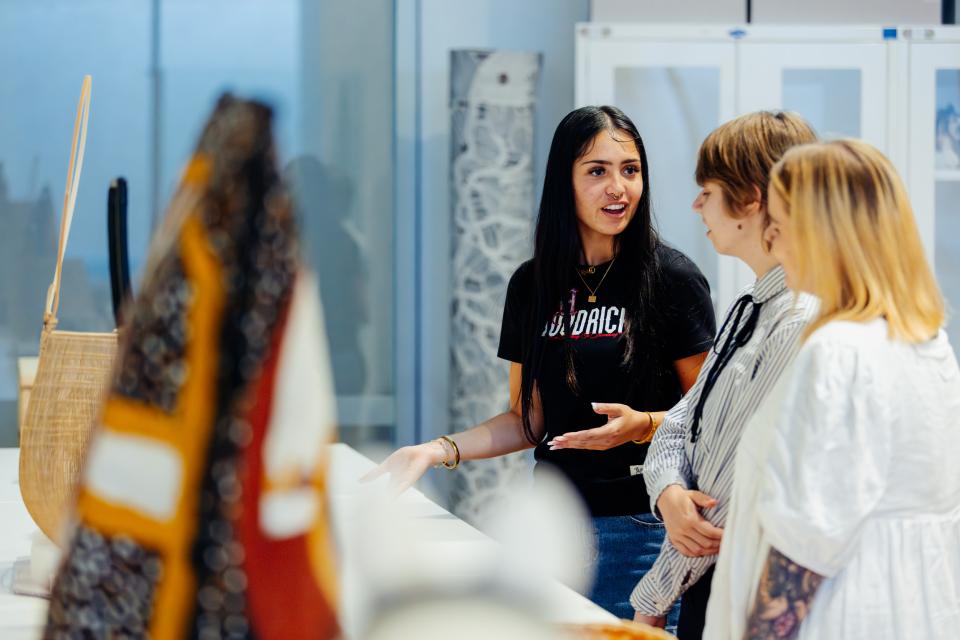
Ngugi/Quandamooka woman Braelyn Rolfe-Chase from the UQ Art Museum leads the popular NAIDOC Art Walking Tours, sharing insights into First Nations artworks and this year’s theme, “The Next Generation: Strength, Vision and Legacy.”
Posters with a voice: NAIDOC Audio Tour
In collaboration with UQ Life, NAIDOC Week also featured an innovative Poster Audio Tour, with eye-catching corflute posters installed across UQ campuses.
Each of the five featured posters represented a key milestone in UQ’s Reconciliation Action Plan (RAP) journey. Through short, engaging audio pieces, listeners were invited to explore the significance of these milestones, their impact on the UQ community, and how they contribute to our broader reconciliation goals.
Whether students and staff were on campus or tuning in from home, the audio tour offered a reflective and accessible way to connect with UQ’s RAP story and the ongoing commitment to First Nations equity and visibility.
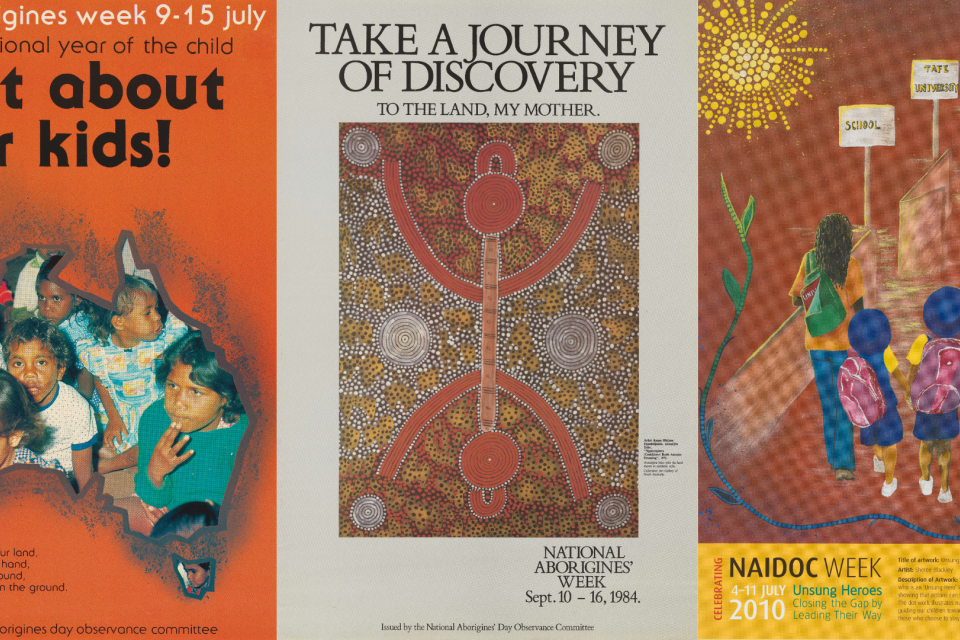
Three of the five NAIDOC posters featured in the UQ Poster Audio Tour, each representing a milestone in UQ’s Reconciliation Action Plan journey and inviting reflection on truth, progress, and Indigenous leadership.
UQ joins the Community at Musgrave Park
To wrap up the week, UQ proudly took part in the Brisbane NAIDOC Week Festival at Musgrave Park — one of the largest community-led NAIDOC celebrations in the country.
UQ staff connected with hundreds of visitors throughout the day, with stalls hosted by the Office of the Deputy Vice-Chancellor (Indigenous Engagement), the Faculty of Health, Medicine and Behavioural Sciences, the Poche Centre for Indigenous Health, the Faculty of Engineering, Architecture and Information Technology, and the UQ Indigenous Futures Centre, part of the ARC Centre of Excellence for Indigenous Futures.
From interactive activities and giveaways to rich conversations about Indigenous-led research and study pathways, UQ’s presence at Musgrave Park reflected a strong commitment to partnership, respect, and cultural celebration.
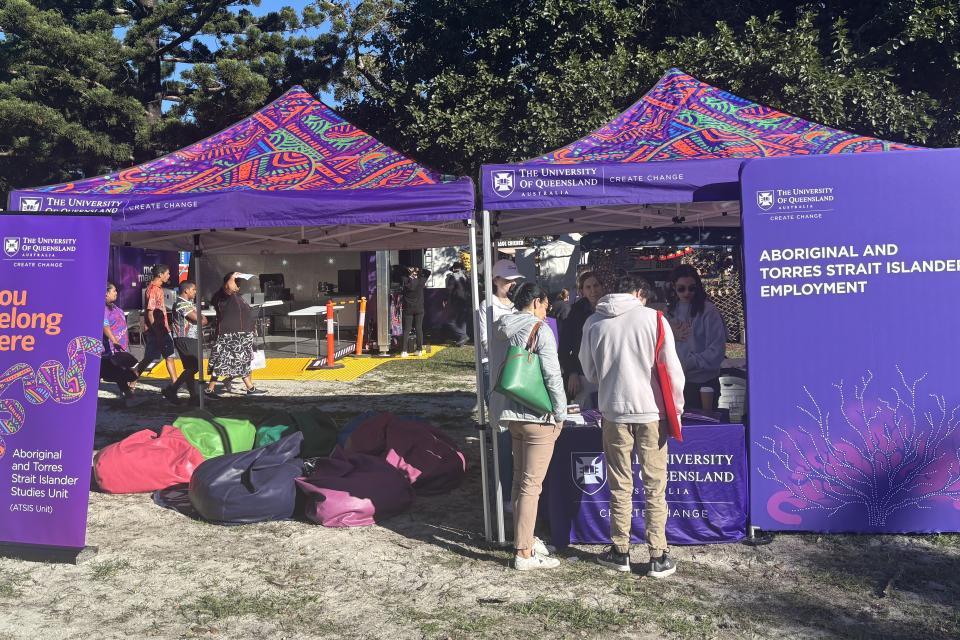
UQ staff connect with community members at the Musgrave Park Family Fun Day, sharing information about study pathways, research, and reconciliation initiatives as part of NAIDOC Week celebrations.
22 events across UQ — and a huge turnout
This year’s program featured 22 events across UQ’s campuses — from panel discussions and cultural seminars to film screenings and community gatherings. Faculties and schools across the university embraced the spirit of NAIDOC Week, creating space for dialogue, learning, and celebration.
UQ extends its sincere thanks to all who participated — from our guest speakers and artists to our students, staff, Elders, and community members.
As we honour the legacy of those who came before, we remain committed to empowering the next generation of Aboriginal and Torres Strait Islander leaders, thinkers and changemakers.

